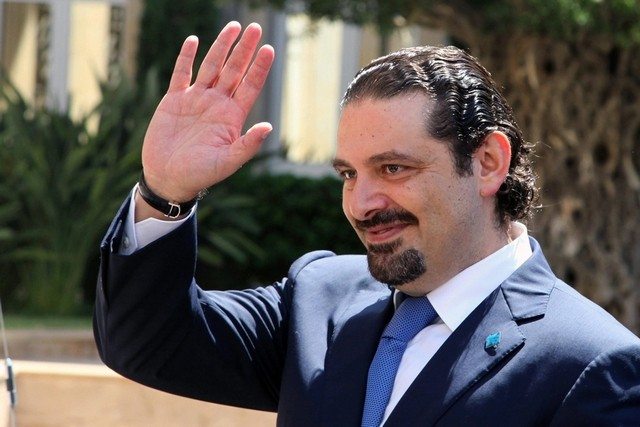Two issues relating to March 14 were at play. The first was what would happen to Saad Hariri, the former prime minister, who has returned to Lebanon after a long absence. The second was the fate of relations between the Lebanese Forces and Mr Hariri in light of the electoral alliance between the Lebanese Forces and Michel Aoun’s Free Patriotic Movement.
Mr Hariri’s political fortunes were mixed. Lists he backed won in Beirut and Sidon. However, in the capital the turnout was very low – showing that Mr Hariri had struggled to rally his base. His list also won by a fairly narrow margin against another that included politically inexperienced civil society figures.
However, Mr Hariri suffered a major humiliation in the one place where he needed to win big. In Tripoli, a bastion of Sunni power, the list backed by the former prime minister and other major local figures lost to a list supported by Ashraf Rifi. He is the pro-Hariri justice minister with whom Mr Hariri had clashed because Mr Rifi resigned from the government without his approval.
Mr Rifi portrayed himself as the true inheritor of Rafik Hariri, implying that Saad Hariri’s alliances with politicians seen as close to the Syrian regime had betrayed this legacy. However, it’s what came afterward that put into perspective how damaging was Mr Hariri’s defeat for relations in March 14.
In Lebanese Forces areas, banners went up congratulating Mr Rifi. This underlined that the rift between Mr Hariri and the Lebanese Forces leader Samir Geagea was far from closed.
Mr Geagea was taken aback months ago when Mr Hariri supported a rival of his, Sleiman Franjieh, for the presidency, without informing him. At the time Mr Geagea was the official candidate of March 14. In response, he endorsed Mr Aoun, long a major rival of the alliance, and distanced himself from Mr Hariri. This brought about the virtual collapse of March 14.
Today March 14 is in disarray. Mr Hariri still supports Mr Franjieh, though there is pressure on him to back Mr Aoun for the presidency, to end the debilitating presidential vacuum that has lasted for over two years. Ironically, Mr Franjieh has told Mr Hariri he would not oppose his voting for Mr Aoun, but given the results in Tripoli, where Mr Aoun is unpopular, the former prime minister will hesitate to alienate his base again.
Hizbollah can delight in all this. With March 14 so divided, the party sees leeway to pursue its agenda in Lebanon and Syria. The presidential void, to which it has contributed significantly, has rendered the state ineffective, giving Hizbollah room to push through its priorities without hindrance.
Mr Hariri’s frustrations are apparently growing. On national television, the interior minister, Nouhad Mashnouq, an ally of the former prime minister, made statements last week that provoked Saudi ire. He said the kingdom, among others, had backed Mr Franjieh’s candidacy, and recalled that it was King Abdullah who had persuaded Mr Hariri to reconcile with Bashar Al Assad in 2010, following the assassination of his father.
Mr Mashnouq was taken to task by the Saudi ambassador in Beirut, and was criticised in a leading Saudi newspaper. While unnamed sources suggested that Mr Hariri was angry with the minister, the reality was likely different. It’s difficult to imagine the experienced Mr Mashnouq making his comments unless it was to send a message on Mr Hariri’s behalf.
Mr Hariri is disappointed that the Saudis have pushed him in political directions that have lost him support among Lebanese Sunnis – including his unpopular alliances in Tripoli, which the Saudis encouraged to reinforce Sunni unity. On top if this, the kingdom has cut off the former prime minister’s funding, so that Mr Hariri’s companies are near bankruptcy, severely limiting his capacity to fund his political machine.
Given this situation it would not be surprising if Mr Hariri used Mr Mashnouq to send word to the kingdom that he deserved better than to be blamed for policies the Saudis had pushed him into pursuing. In the bigger picture this could mean that Mr Hariri is slowly clearing the way for a political shift of his own, one that could see him favour Mr Aoun.
What would Mr Hariri gain? A return to political life in Lebanon would allow him to play a more active role, perhaps even as prime minister. A president and a functioning government would also spur much-needed economic activity, allowing Mr Hariri to slowly revive his patronage networks.
We’re not there yet, but March 14 was always Mr Hariri’s ticket to national prominence. As it has fallen apart, his political fortunes have waned, while his political rivals have gained. Mr Hariri has no choice but to adapt to the new situation, quickly.
Michael Young is a writer and editor in Beirut
On Twitter @BeirutCalling

